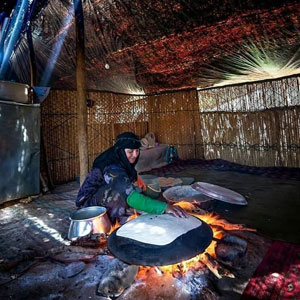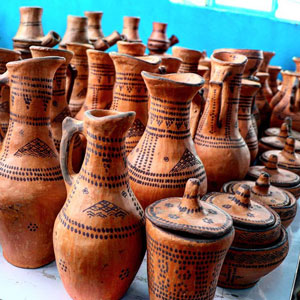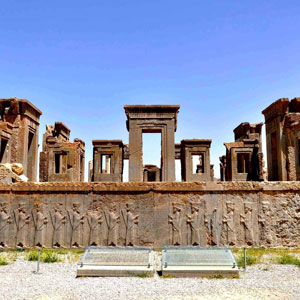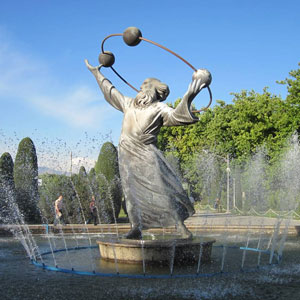 Signin with Google
Signin with Google Signin with Facebook
Signin with Facebook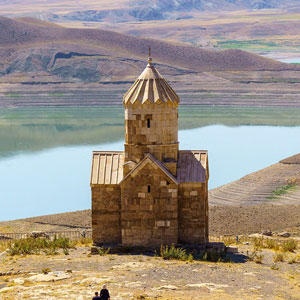 Places
PlacesNasir ol-Molk, a Mosque Reflects the Heaven
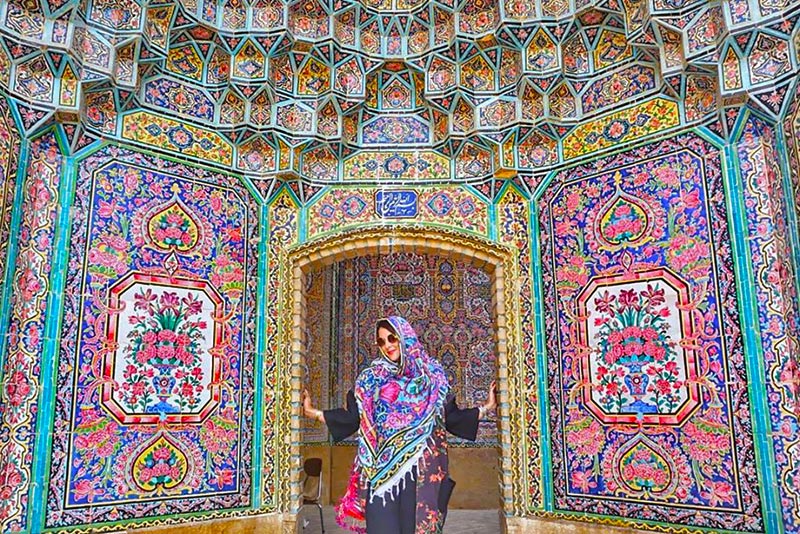
As enchanting as stories of “One Thousand and One Nights”, stepping in Nasir ol-Mulk Mosque is like entering a mansion from a fairyland. This magnificent house of worship locates in the city of Shiraz, is also known as the Pink Mosque due to the significant use of exquisite rose-colour tiles, the alluring stained glass and the impressive sight of sun rays passing through the colourful glass showering the prayer hall with hues of light.

Humble, yet Glorious, the Persian style of paradise
From the outside, Nasir ol-Mulk might look like an ordinary traditional Iranian mosque, since its location on the alley, its modest entrance gate, the lack of high minarets and a giant dome does not reveal anything about the surrounded garden inside the building.
Once you enter the place, the precise architectural symmetry catches your eyes. There is a big rectangular pool with golden fish in the centre of the courtyard that reflects the sky and structure on its water. At both northern and southern ends of the yard, there are two porches with stunning half-vaults ornamented with colourful tiling and detailed Persian Muqarnas art.

There are two prayer halls in this mosque, one on the left side of the pool (winter prayer hall) and the other on its right (summer prayer hall). There are eight arches on the eastern room facade and seven Orsi windows on the western hall facade which is the most beautiful part of the complex where the light magic happens, however, the beauty of this chamber is not limited to its colourful windows. The ceiling of this hall relies on twelve stone columns that are skillfully carved with tiny domes between each pair of columns. The end of this pillar row leads to a gorgeous altar which completes the splendour of this praying room.
The Qajar Beauty
Hundreds of historical mosques all around Iran are all specific in their way; however, some features come in common such as the brickwork, turquoise tiles, pairs of minarets, etc. What makes Nasir al-Mulk mosque on top of the list is its unique style and architectural details. It took 12 years to complete (1876-188); the mosque was built by order of one of the Qajar grandees, Hassan Ali Nasir-ol-Mulk, son of the ruler of Fars Province at the time.
As mentioned before, this splendid building was built in the Qajar era, the time when Iran was taking the first steps of modernization under the influence of Europeans who frequented the country and had a considerable impact on the country’s art, architecture and culture.
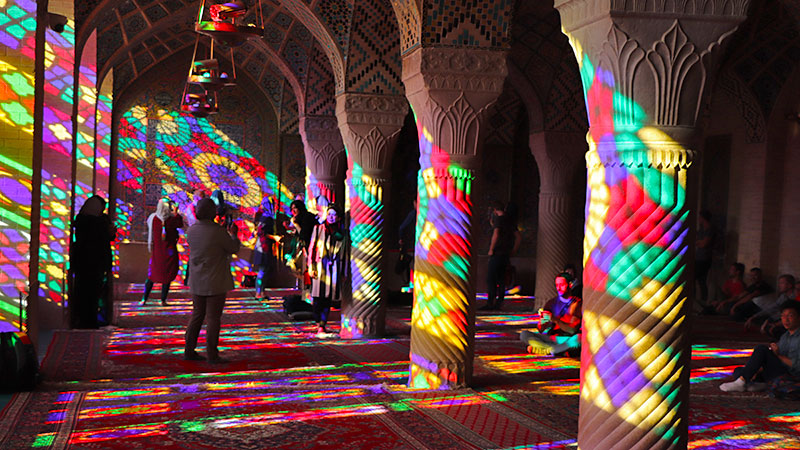
In the name of the mosque, architectural phenomena
Nasir ol-Mulk Mosque is a decent example of the combination of Persian architecture and European tilework. The pink-coloured tiles of the mosque with beautiful floral designs are new features –brought by Europeans- added to the geometry-based Persian tilework in which turquoise and other shades of blue were the dominant colours before.
Another factor that makes this building unique is the skilful use of colourful stained-glass windows with wooden frames, known as Orsi windows in Persian, in the winter prayer hall, which is different from the stained glass one might see in a church or a synagogue. Orsi windows are standard in traditional Iranian architecture, mostly in houses and mansions but rarely seen, specifically with this splendour in a mosque. The smart placement of the windows where the sunlight glints every morning and makes a spectacular drizzle of colourful lights shows its architect subtlety.

Photographers’ Heaven
The distinctive architectural features along with the miraculous lighting made Nasir ol-Mulk Mosque become one of the most photographed spots in Iran. Several tourists even stated that seeing photos of this place has motivated them to take a trip to Iran.
The best time to visit this mosque is between 7:00-11:00 in the morning (the sooner, the better) , when the sun is at its best location to shine through the colourful windows. It is a must-see landmark of Shiraz and worth visiting.

By Nazanin Moayed / TasteIran

